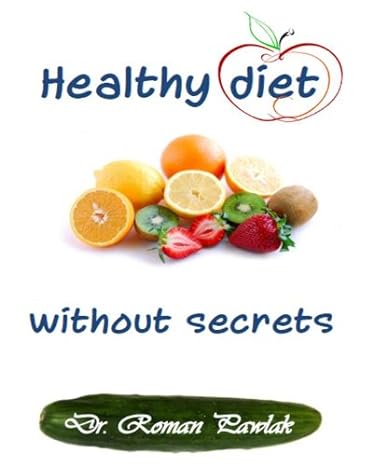Description
In the last several years, many new diets have been introduced, most if not all of which claim to be the solution to one (e.g. obesity), many, or even all of the health problems inflicting Americans. Most of these diets differ radically and yet each one declares that it is the most suitable for the human race. The promoters of each of these diets promise unbelievable results as a consequence of adopting their dietary principles. It seems that never in the past have we had to choose between so many conflicting messages. The Flat Belly diet, Paleo diet, Cabbage Soup diet, Raw Food diet, Gandhi’s diet, Hollywood diet, Russian Air Force diet, Hallelujah diet, Beverly Hills diet, Jerusalem diet, Metabolic diet, Zone diet, Atkins diet, Optimal diet, the Seventh Day diet, Brain diet, and the Leptin diet are just a few examples of many more diets available for those who are willing to adopt them. Which diet is the best: a low or high carbohydrate diet, low or high protein diet? Are products cooked in a microwave fit for human consumption? Should we eat only organic products? Are soy products healthy? What about genetically modified products? Should we consume dietary supplements? If so, which ones? Should we all be on a specific diet? If so, which one? Should we, in addition, take a supplement or supplements? Is so, which one? Whom to trust? How to know whether a given diet is based on scientifically sound principles?
Physicians and Dietitians are often featured on TV, radio and Internet commercials promoting these conflicting diets. How is it possible, since as indicated, many dietary principles advocated by one diet are 100% contradicted by dietary principles advocated by other diets? Is it true that the soil is depleted and that the produce we eat is completely deprived of nutrients? Is it correct to teach that cooked foods are the cause of diseases and therefore we should be eating mostly or exclusively raw foods? It should be pointed out that these two views completely contradict each other. This is because if it is true that the soil is depleted with nutrients and consequently we eat nutrient deprived foods, what difference would it make to eat them raw or cooked?
Authors of many of these diets make unbelievable and unrealistic promises to encourage consumers to adopt them. For example, some of the weight loss diets claim that a person can lose up to 10 pounds in just 48 hours without any changes to one’s lifestyle, with no dietary or physical activity modification. These results, the ads say, will come “quickly, easily and without dieting.” For people who do need and want to lose weight I want to share an honest truth: achieving an optimal weight will not be something that comes easily, quickly and in order to make some progress toward the goal, it will be crucial to make specific and sometimes radical lifestyle changes and some of these changes will be painful to make.
The dietary principles outlined in this book are effective in the prevention of many leading health problems mentioned above. I have not invented them. I am not introducing a new diet. I have outlined dietary principles that are consistent with the dietary guidelines advocated by many American and international professional organizations. The recommendations presented in this book are based on hundreds or even thousands of studies published in the scientific literature. Their compliance will help to prevent the emergence of chronic diseases and in the case of persons already suffering with heart disease or diabetes, they will be effective in their treatment.






